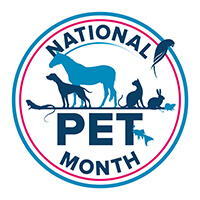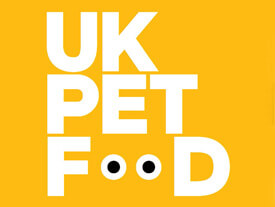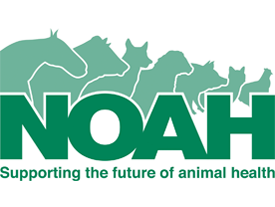National Pet Month’s Great Kitten Nutrition Guide
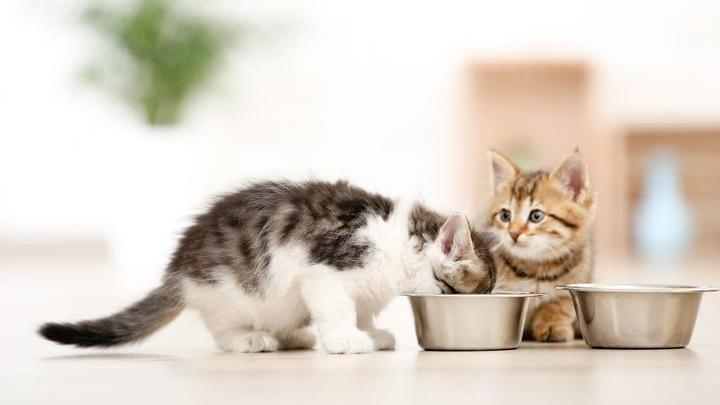
Getting your kitten’s diet right at this early stage, will help way beyond their first few months of life.
Kittens are precious bundles of fur, but underneath all that fluff, they have a lot of growing up to do. In a relatively short timeframe (just 8-12 months), they rapidly develop muscles, bones, skin and coat, teeth, and internal organs, as well as important socialisation skills. Getting your kitten’s diet right at this early stage, will help way beyond their first few months of life.
Birth to weaning
A kitten’s survival instinct kicks in quickly. Soon after birth new-borns will try to find mum’s milk supply. This is a crucial time as the mother will have produced a special type of milk called colostrum, which helps support the immune system. During the first few weeks of life, most kittens will nurse at least four to six times per day. In the case of orphaned kittens, mum lacking milk, or kittens failing to latch on, kitten formula/milk replacer should be given.
Fast forward to around week three or four and a kitten’s nutritional requirements change. Their mother’s milk production naturally lessens while the kittens’ ability to digest lactose also decreases. From this point, it is important to gradually introduce a fully balanced and complete kitten diet, especially designed to meet kittens’ nutritional needs, providing sufficient energy and highly digestible nutrients.
Introducing the new diet – slowly does it
A Kitten diet should be introduced gradually. Simply combine a Kitten formula/milk with a wet or dry ‘complete’ Kitten diet, mixing it into a gruel. Cow and goat’s milk should not be used as they cannot be digested as well. Use a shallow dish to allow the kitten’s easy access to the food.
Transition to only feeding solid food around 6 weeks old
With time, slowly replace the milk with water (if feeding a dry food), until only feeding the solid food at around 6 weeks of age. At this point all kittens should be fully weaned, happily eating a specially formulated Kitten diet. Always make sure your kitten has a good supply of fresh drinking water available.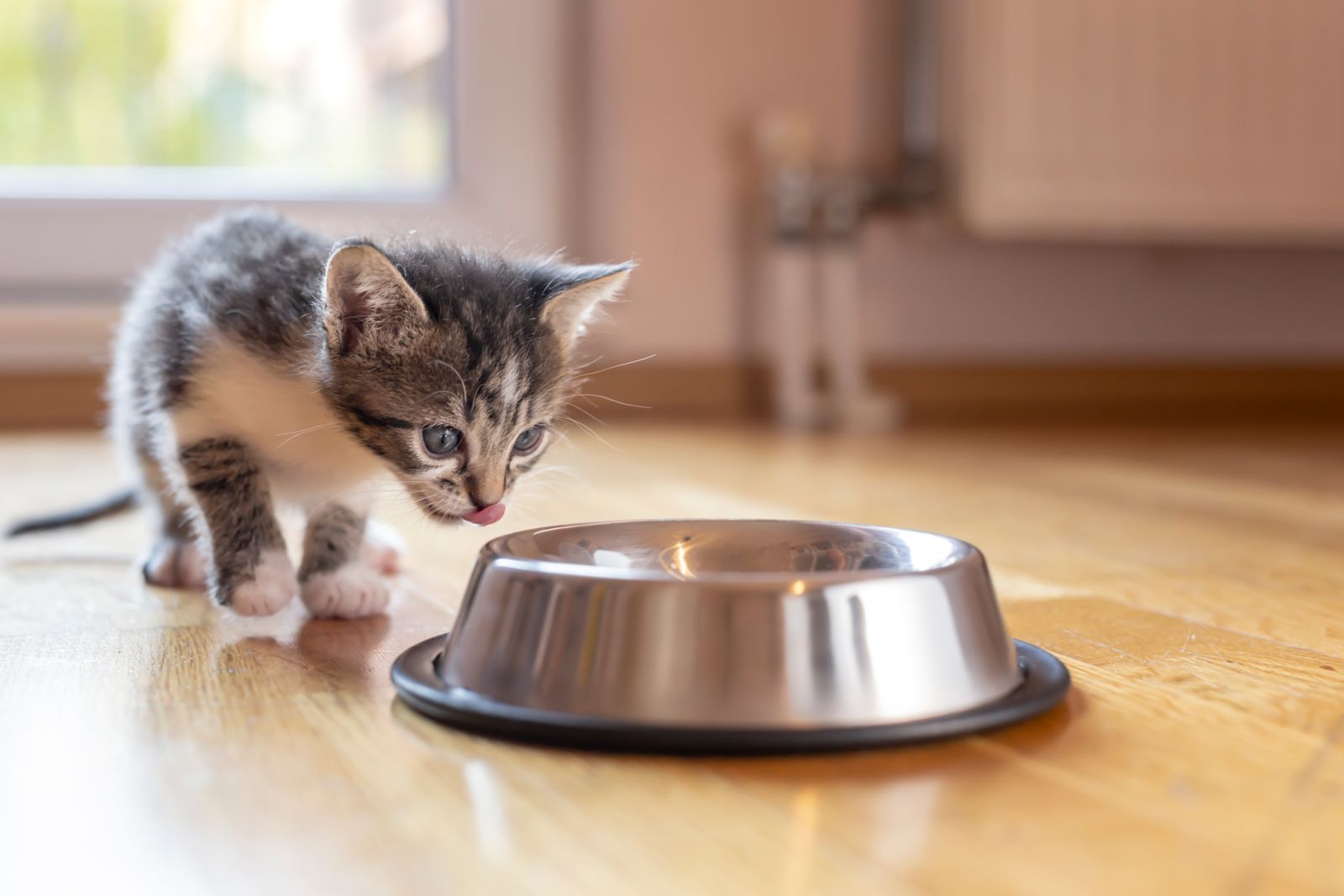
How much to feed?
For guidance on how much to feed, start by following the feeding guidelines on the pack. Weigh the kitten’s daily food ration using an accurate kitchen scale to ensure they receive the correct amount of energy and nutrients.
While products’ feeding guidelines are a great starting point, remember all pets are unique and calorie intake should be adjusted according to individual needs. Monitor your kitten’s body condition and weight if you have concerns, seek advice from your vet.
How often to feed
Kittens need and enjoy being fed little and often, dividing small portions from their daily food ration at regular intervals throughout the day.
6 months of age
By the time the kitten reaches 6 months of age they can transition onto 2 meals a day, but keep in mind that cats generally, being natural grazers, prefer to eat little and often.
If feeding wet food, any leftover food should be cleared away after 30 minutes, but dry food can be left out for longer.
Moving from kitten on to adult food
Once kittens have reached 90% of their expected adult weight, they can switch from a Kitten diet designed for growth, to a maintenance diet intended for adulthood.
A change from one food to another should be done gradually (over 5-7 days), increasing the quantity of the new food, and reducing the current food each day until only the new food is given. This will help avoid an upset digestive system.
To supplement or not to supplement – that is the question
There is no need to supplement a complete and balanced kitten diet. Simply invest in a good quality complete and balanced diet designed to help support healthy growth and development.
